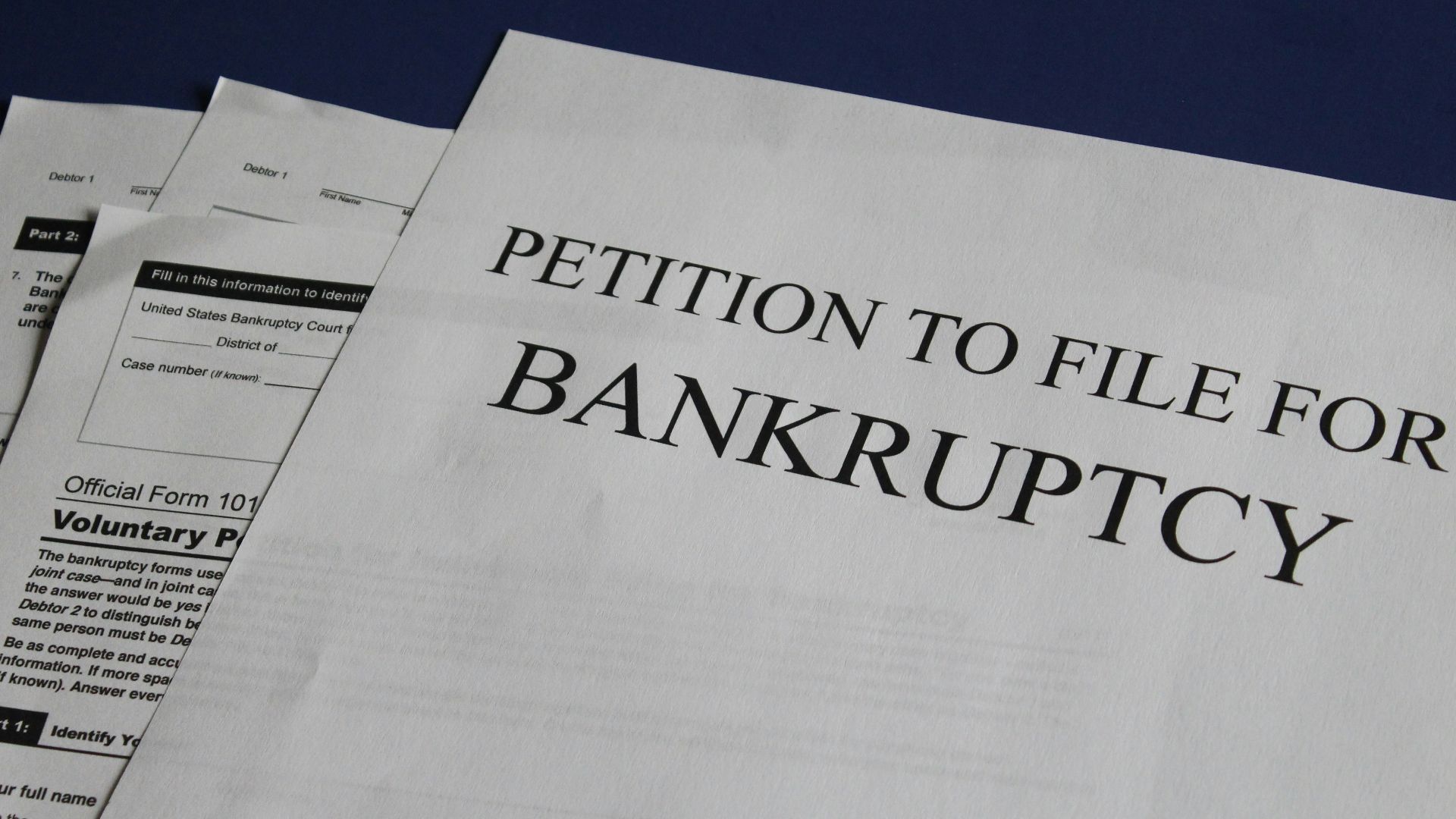What To Do When Co-Signing For A Loved One Goes Wrong
So you co-signed your sister’s mortgage. At the time, it probably felt like no big deal—you were being the supportive sibling, helping her get the keys to her dream home. But now she’s stopped paying, and you’re wondering, “Am I really on the hook for this?” The short answer? Yep. The longer answer? Don’t panic—you’ve got options. Let’s break it down.

What Co-Signing Really Means
Here’s the deal: when you co-signed, you didn’t just vouch for your sister like a character witness in court. You actually promised the bank, in writing, that if she drops the ball, you’ll pick it up. Think of it as agreeing to be her financial stunt double.
The Truth About Liability
A lot of people think co-signing means you’re “half responsible.” Nope. You’re all in. If she misses a payment, the bank doesn’t chase her first while you relax in the background—they’ll happily come straight to you for the full amount. Equal liability means exactly that: you’re just as much on the hook as she is.
When Payments Go Missing
Missed payments don’t just disappear into thin air. They land right on your credit report like a bad tattoo. You’ll also start getting friendly phone calls from the lender reminding you that the mortgage is overdue. And if the problem doesn’t get fixed, foreclosure is the grand finale no one wants.
First Step: Assess the Damage
Before spiraling into worst-case scenarios, get the facts. How many payments are behind? Has the bank already started foreclosure? What’s the house worth compared to what’s left on the loan? Knowing the numbers makes the situation way less overwhelming.
 Vodafone x Rankin everyone.connected, Pexels
Vodafone x Rankin everyone.connected, Pexels
Talk It Out With Your Sister
Time for an awkward sibling heart-to-heart. Ask why she stopped paying. Is it a short-term mess, like losing a job, or something more permanent? Is she open to selling, refinancing, or downsizing? You need straight answers to know what you’re really dealing with.
Don’t Ghost The Lender
The worst move is staying silent. Call the bank, explain you’re the co-signer, and ask about options. Believe it or not, lenders would often rather work with you than go through the hassle of foreclosure. A little proactive communication can buy you some time and maybe even better terms.
Forbearance & Modifications
Banks aren’t heartless robots. Sometimes they’ll allow forbearance, which is basically a pause button on payments, or a loan modification, which can stretch out the loan, lower the rate, or reduce the monthly bill. It’s like renegotiating the rules of the game.
The Refinancing Question
If your sister still has income, refinancing could shrink the monthly payment and make things manageable again. If not, the lender may look to you. But be careful: refinancing in your own name is like volunteering to carry the entire mortgage on your back. Only do it if you’re absolutely sure you can handle it.
Should You Sell Or Rent?
Sometimes, the cleanest fix is just to sell the house and wipe the slate. If the home has equity, the sale can cover the mortgage and set both of you free. If selling isn’t possible, renting the place out could at least cover the payments for now. Think of it as turning a liability into a temporary side hustle.
Your Credit Report Takes A Hit
Every missed payment shows up on your credit like an ugly blemish. This can make it harder for you to borrow money, rent a place, or even land certain jobs. Even if you swoop in to fix things later, the mark on your credit history hangs around for years like an unwanted party guest.
The Deficiency Judgment Twist
Here’s a plot twist many people don’t see coming: if the house goes into foreclosure and sells for less than the balance, the lender can sue for the difference. Yep, you and your sister could still owe money even after losing the house. Fun, right?
Bankruptcy: Not The Magic Eraser
Bankruptcy sometimes comes up in conversations like these, but it’s not a get-out-of-jail-free card. If your sister files, the bank can still chase you. If you file, sure, you might get relief—but at the cost of a wrecked financial reputation for years. This is a last-resort move, not a quick fix.
Watch For Surprise Tax Bills
Here’s another curveball: if part of the debt gets forgiven, the IRS might treat it as taxable income. That means you could get a tax bill for money you never even saw. Talk about insult to injury. A tax pro can help you figure out if any exemptions apply.
Protecting Yourself Next Time
Once you survive this storm, it’s time for some tough love with yourself: think twice before co-signing again. If you ever do, set up a legal agreement with the borrower, and check the account regularly instead of trusting things will work out. Generosity is great, but not when it tanks your credit.
Can You Sue Your Sister?
Technically, yes—you could take her to court to recover any money you pay. But suing family rarely feels like a win, even if you get a judgment. And if she doesn’t have the money, you may not get much anyway. Think carefully before heading down this road.
When To Call A Lawyer
At some point, bringing in a real estate attorney may save your sanity. They can explain your rights, negotiate with the bank, and guide you through foreclosure laws in your state. Sometimes a single consultation can save thousands of dollars—and countless headaches.
Credit Counselors To The Rescue
Another option is nonprofit credit counseling. These folks can help set up repayment plans, talk to creditors, and maybe even stop your credit from bleeding out. It’s often free or low-cost, which makes it a no-brainer resource to check out.
Budgeting for Backup Payments
If you decide to start covering the mortgage yourself, it’s time to look hard at your budget. You may need to cut back on extras, dip into savings, or delay other goals. It’s not fun, but keeping the loan current is usually better than dealing with foreclosure fallout.
 Photo By: Kaboompics.com, Pexels
Photo By: Kaboompics.com, Pexels
The Family Drama Factor
Money and family are a messy mix. Resentment, guilt, and stress can boil over fast in situations like this. If you find yourselves fighting instead of problem-solving, a neutral third party—like a mediator—might help keep things from turning into World War Sibling.
 Photo By: Kaboompics.com, Pexels
Photo By: Kaboompics.com, Pexels
The Hard Lesson About Co-Signing
At the end of the day, co-signing isn’t just “helping out.” It’s taking on the debt yourself, with all the responsibility and risk that comes with it. Most people don’t realize that until it’s too late. If you’ve learned that lesson the hard way, you’re definitely not alone.
What Would You Do If Your Sister Left You In This Mess?
Yes, you’re on the hook. That’s the harsh reality of co-signing. But you’re not out of options. Talk to your sister, call the bank, explore forbearance, refinancing, selling, or renting. Get professional advice when you need it, and act sooner rather than later. It’s not fun, it’s not fair, but with clear steps and quick action, you can limit the damage and keep your financial future on track.
You May Also Like:
Collectible Sneakers That Are Worth Big Bucks
The Best Paid Trades To Start Learning In 2025
I bought 5 vending machines, but all the snacks expired. Am I stuck with the loss?

























